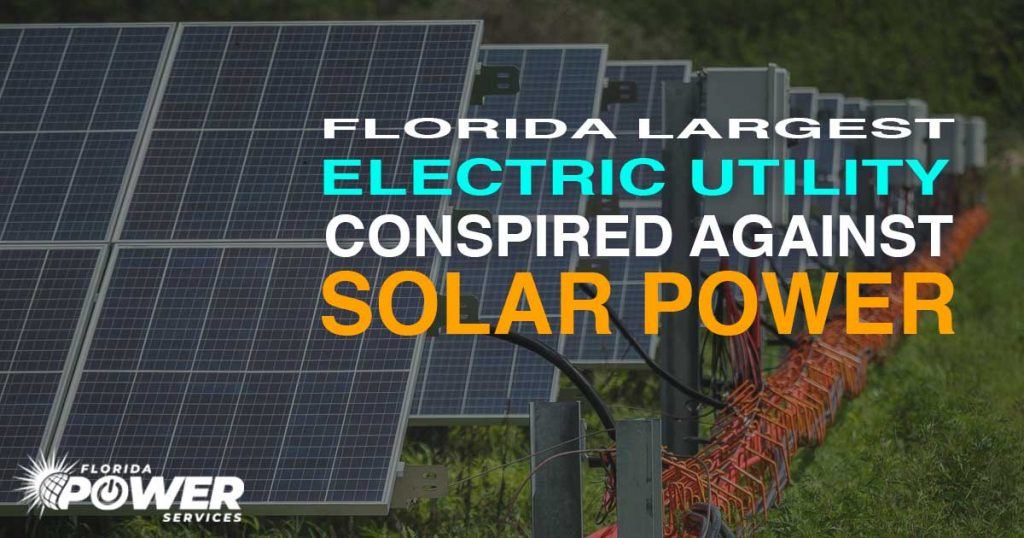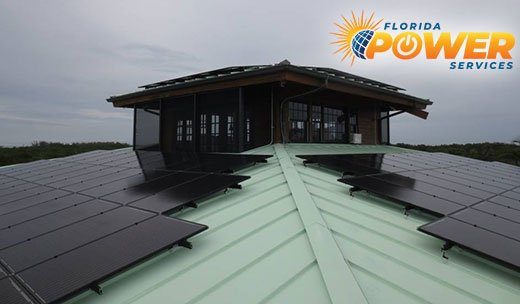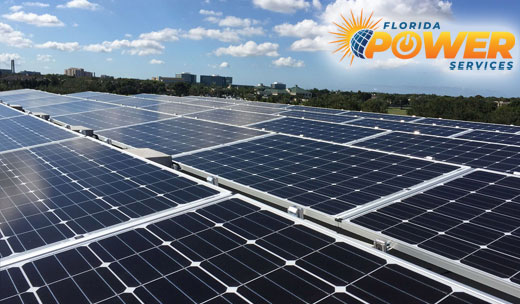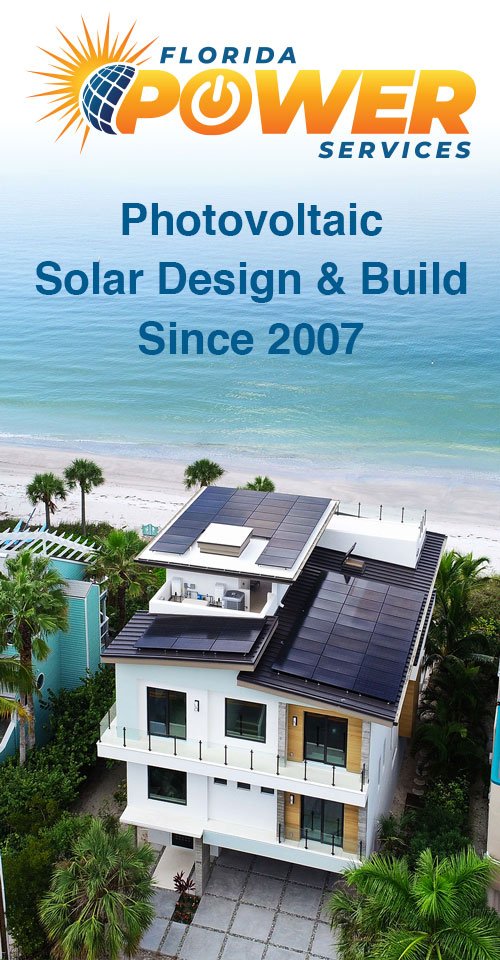Shocking news has emerged that Florida’s largest utility conspired against Florida solar power. Tampa Bay Times reports that Florida Power & Light (the nation’s largest power company) has been making efforts with state lawmakers to cripple the rise of the solar industry.
Aside from the obvious greed involved, any efforts to slow the solar industry’s rise in the face of the climate crisis is unforgivable. Their actions put thousands of jobs at risk.
How Florida Power & Light Attacked Net Metering
In our recent blog, we explained how solar users’ net metering benefit is at threat. But now it’s become apparent who is behind it. Documents reveal that Florida Power & Light asked Sen. Jennifer Bradley to sponsor its proposed legislation – a plan to restrict solar homeowners and businesses from the benefits of net metering. Shockingly (yet somehow without surprise), Florida Power & Light drafted the bill and followed it up with a $10,000 contribution to Sen. Bradley’s political committee. Bradley filed the bill and a week later, Rep. Lawrence McClure introduced an identical version in the House.What Is the Bill?
Since 2008, net metering has allowed Florida solar users to sell their excess solar energy generation back to the utility at the full retail electrical rate on their monthly bill. This bill attempts to change that. Net metering would no longer be possible and would severely penalize solar users – restricting the growth of the Florida solar industry, one of our shining lights. Despite studies proving that net-metering has no impact on non-solar users, this legislation would punish solar customers. It is merely an attempt to squash the solar industry. And that becomes extremely obvious when you realize Florida Power & Light were the architects of it.‘Could Devastate the Solar Industry’
We, and many others, are fully aware that this could devastate the solar industry. Net metering is a significant draw for solar customers and there is no reason for this punishment. Will Giese, southeast regional director for the Solar Energy Industries Association, stated: “This is a tired tactic that utilities have used to maintain their monopoly grip on electricity markets. Net metering is a popular program that gives people the right to choose the energy that works for them, provides benefits to all ratepayers and creates thousands of energy jobs across Florida.” However, perhaps worst of all is that these utilities are coming for small companies like ours. They’re acting like victims when in reality, it is the jobs of small companies, local companies and Florida engineers and craftsmen that are at risk through this bill.Net Metering Is Not and Should Not Be to Blame.
Florida Power & Light is claiming that rooftop solar will cost them hundreds of millions of dollars over the next few years. Blaming net metering has been proven as nonsense. Florida Power & Light spokesman Chris McGrath said: “We simply believe rooftop solar customers should pay the full cost of this investment.” However, according to the Solar Energy Industries Association, sixteen state-level studies and a national study have already proved these allegations are false. The truth is that utilities are struggling because solar is on the rise and the climate crisis is staring them in the face. They can’t escape that, and no legislation or conspiring will change that.Florida Power & Light Has a Dark History
For the solar industry, policy attacks against us aren’t anything new. Florida Power & Light has consistently been a significant contributor to legislative Florida political campaigns. The following information was reported by Tampa Bay Times:- Back in 2016, it backed a failed ballot amendment aimed at imposing fees and other hurdles for rooftop solar installations.
- It’s also invested millions into untraceable, anonymous donors that attack state and local politicians.
- The Orlando Sentinel reported that Florida Power & Light executives were also involved in various ‘dark-money’ nonprofits – including a scandal involving a so-called ‘ghost’ Senate candidate.
- Its CEO Eric Silagy was also found to be involved in funding dark-money groups.
Why Are Utilities So Scared?
- Solar and clean energy is the future, and that is a reality that utility companies are learning fast.
- Utilities make money from building things – such as large power plants and power lines. They don’t make any money off of solar power generated on homeowners’ roofs and that’s a problem.
- They’re also quickly learning that they need to adapt to cleaner energy methods.
- Under Florida’s current net metering program, properties that generate under 2 megawatts of solar energy can sell the excess energy back to the utility for a bill credit of 11 per kWh.
- Florida’s solar industry grew by 57 percent in 2020, according to the U.S. Energy Information Administration.
- Florida has the second-largest solar workforce in the U.S., with over 11,000 direct jobs, and 31,000 indirect jobs.
How You Can Help Protect the Florida Solar Industry:
This industry has the chance to send our state into the future, which will need to be green and clean. But as you can see, the Florida solar industry is at threat. Any concerned Florida solar customers or Florida residents that want to protect our industry and the jobs associated with it can do so:Contact Legislators
Legislation is thankfully not passed by conspiring companies. It is passed by legislators. With 93% of Floridians supporting net metering, we have people power. By emailing Florida legislators, we can make our voices heard. Solar United Neighbors has set up a page allowing you to email the relevant contacts all in one click. Click here to get started. “Several key legislators need to hear from you today — Senate bill sponsor Senator Jennifer Bradley, House bill sponsor Representative Lawrence McClure, House Commerce Chair Blaise Ingoglia, and your own elected representatives. Email them all and urge them to oppose SB 1024 and HB 741.” Personalized messages make a bigger impact, so be sure to mention:- How you use solar
- If you work in the industry and are concerned about your job
- How this could impact your solar plans
- Your concern for the environment

















